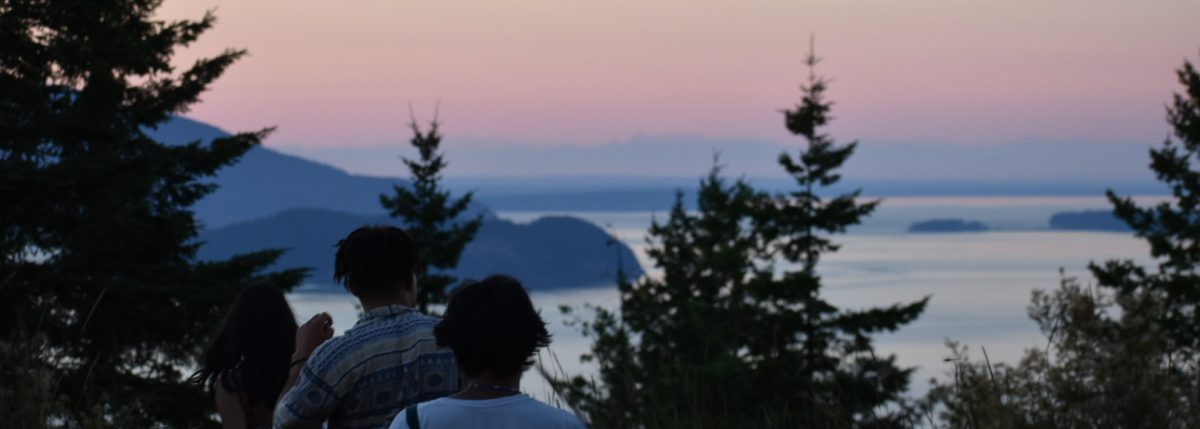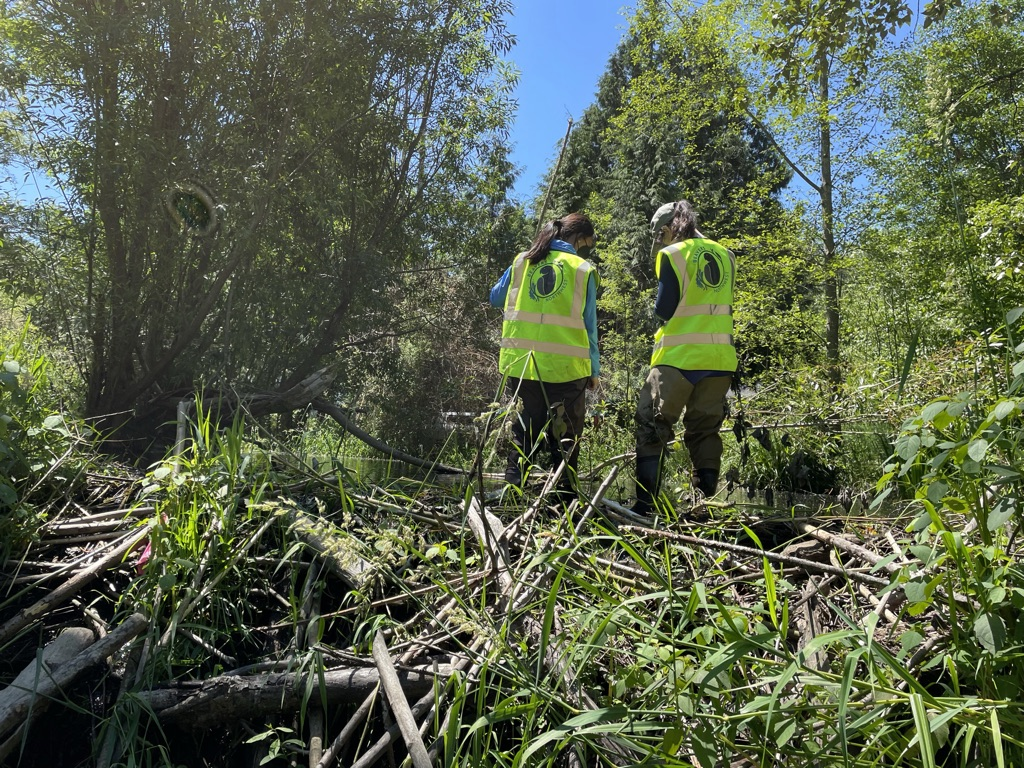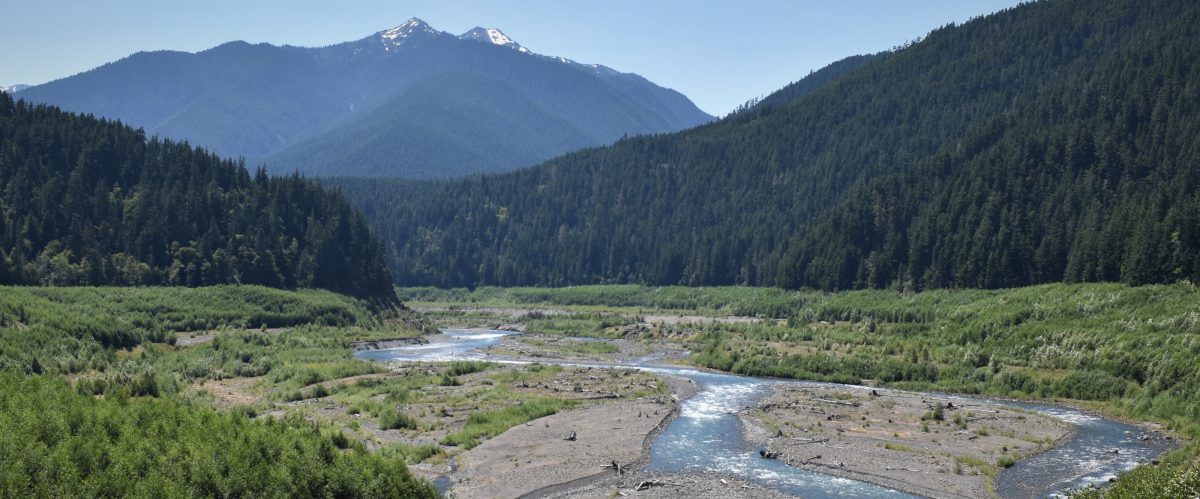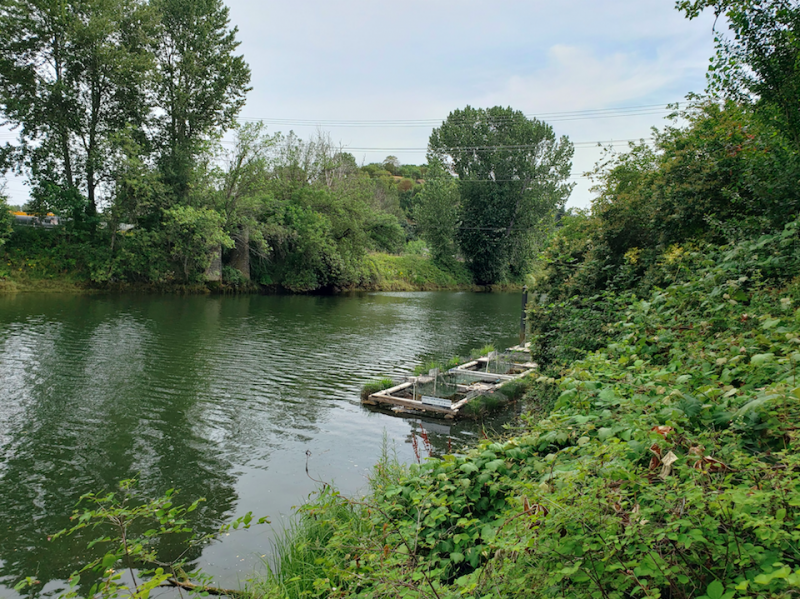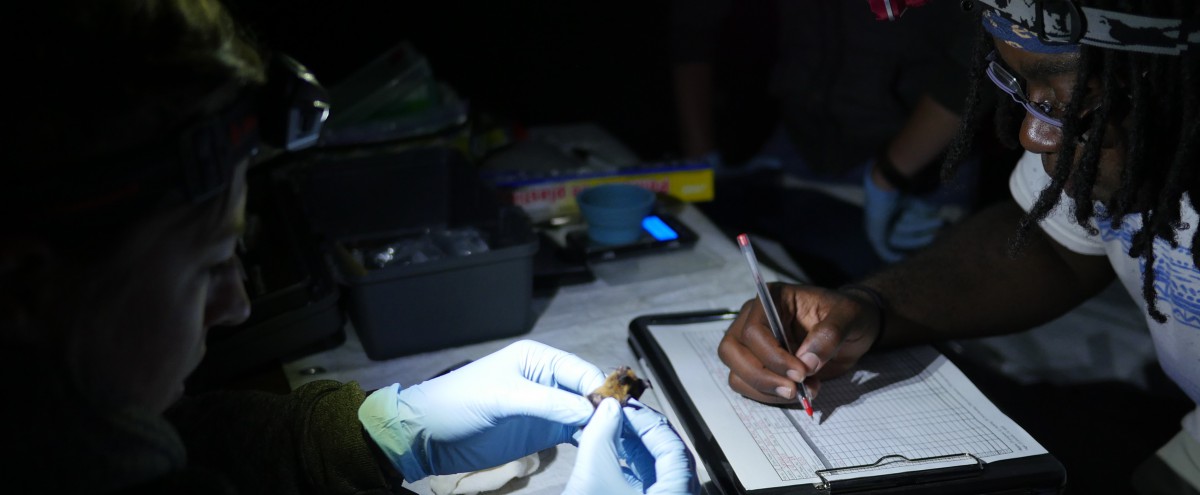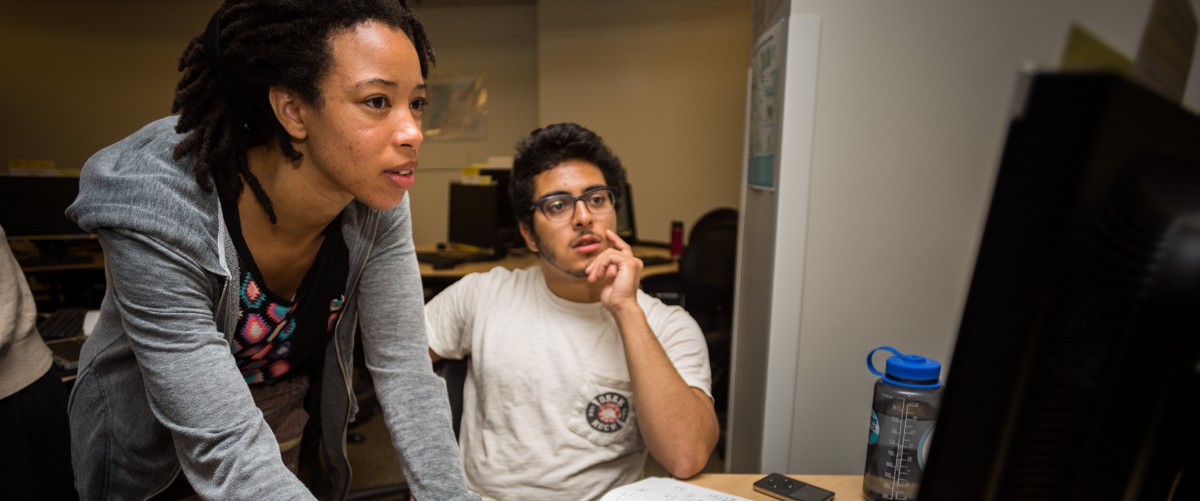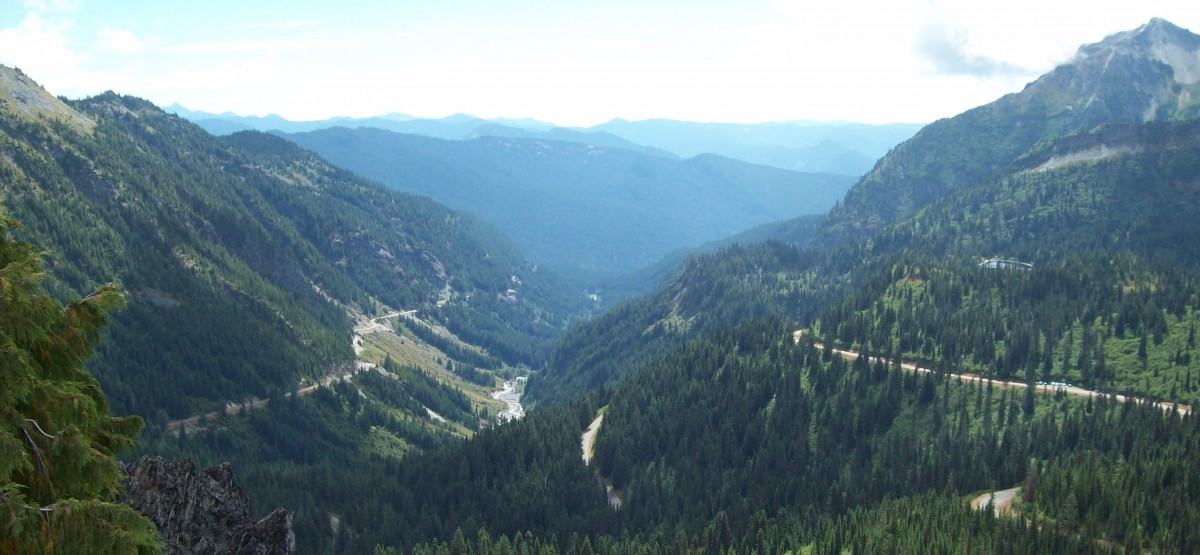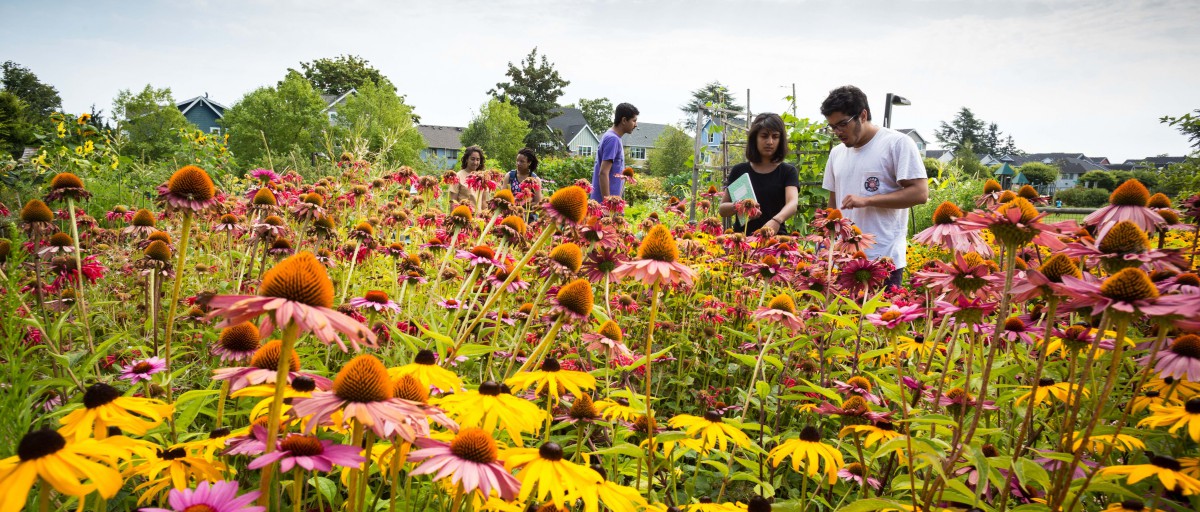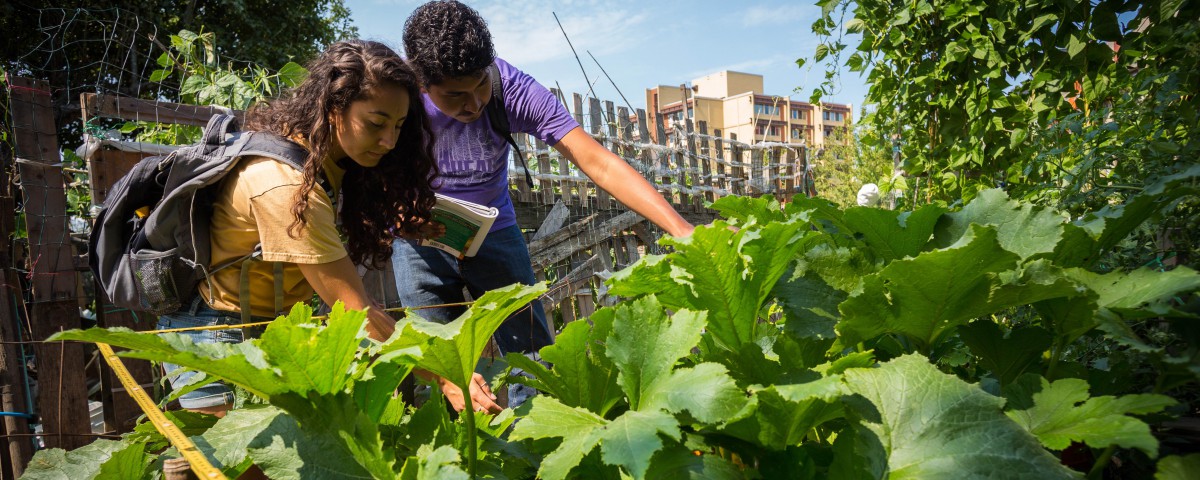“This summer, I interned with the Duwamish Floating Wetlands Project, one of two projects originating in the Green Futures Lab at the University of Washington. I had a unique hybrid experience—twice a week, I was able to spend time out on the BioBarges, where I worked with community members and the GFL team to monitor how these floating wetland structures were impacting fish and invertebrate populations, plant growth, water quality, and more. Later in the season, my in-person time transitioned to lab work, processing plant and invertebrate samples as the BioBarges were decommissioned.
Out of the field, I spent my time developing social media content for the project, writing posts for the GFL’s blog, and engaging with my own reflective, creative work around science, language, history, and positionality. I wasn’t sure how to combine all of these elements into a cohesive project, so my “project” is in many ways the story of my summer, as told through photos, poems, and reflective pieces. I’m currently working on a website where all my work is housed, and depending on how things go, might also put together a zine exploring themes of definition, extraction, and collaboration in science.”
– 2019 Scholar Ayana Harscoet
